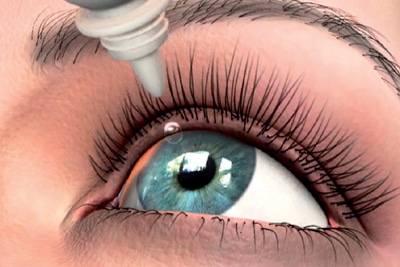Phuket Lifestyle: Eye to eye contact

PHUKET: As an eye doctor who has practiced in Phuket for many years, I have found that the patient base is unique because of the diversity of nationalities that reside on the island.
My patients are from various countries and I have learned that there is a huge difference in the ability to access healthcare services around the world. In some countries it is difficult to see specialist doctors – you need a referral from your family doctor before meeting with a specialist. If your condition isn’t urgent or is considered an elective condition, you will join a long waiting list.
In Phuket, the situation is considerably easier because you can visit a hospital and request an appointment directly with a specialist. The appointment will usually be set within one or two days (especially in private hospitals). In my opinion, this is a good opportunity for anyone to improve healthcare.
Eyes, as with other organs in the human body, keep changing over time, but they are unlike other organs because the changes generally occur in stages and are almost the same for everyone. For example, as people approach the age of 60 they face the increasing risk of conditions and diseases such as cataracts, glaucoma or macular degeneration.
A misconception that many people have is that their eyes are healthy because they see well. This idea is totally wrong because human vision is maintained by the “healthy part compensating for the bad part”. Serious diseases such as glaucoma can confirm this fact because the disease will not affect your vision until 40 per cent of the eye nerve has already died.
If a patient waits until vision is affected, it most likely means a condition that has already progressed too far. I can say that most serious eye diseases that are difficult to treat have happened in this way.
Because of this, all eye care professionals have agreed that everyone should have a regular and comprehensive eye examination. A simple vision screening test at a spectacle shop is not enough.
What to expect during an eye examination.
Comprehensive eye examinations include a set or series of eye tests (click here for table of suggested frequencies for eye examinations), that determine your eye health status and estimate the patient’s risk for contracting various diseases.
The complete eye examination varies from 30 minutes to two hours. The amount of information gathered from the examination and the cost of the examination will mostly depend on how well the hospital is equipped with advanced instruments.
The following are eye and vision tests that you are likely to encounter during a routine comprehensive eye exam:
Vision test:
This is the first and most basic test where the patient reads a visual acuity chart. The test will let the doctor know how well you can see and will determine if your vision is in normal range or not.
Refraction test:
This test will tell give the patient’s eye prescription and determine if you need glasses to improve your vision or not.
Slit-lamp examination:
The Slit-lamp (or bio-microscope) allows the doctor to see a highly magnified structure of the front part of the eye. Corneal problems or cataracts can be detected with this test.
Glaucoma test:
Glaucoma refers to a group of diseases that are often associated with abnormally high pressure inside the eye which can cause damage to the optic nerve. Glaucoma is the leading cause of poor vision in the elderly and the risk increases with age. The glaucoma test consists of:
- Eye nerve analysis
- Eye pressure measurement
- Visual field testing. The test measures peripheral vision and is straightforward, painless, and will identify vision damage caused by glaucoma.
Retina examination:
The retina is a nerve membrane that lines the back of the eye. Cells in the retina transfer signals from your eye to your brain which allows you to see. The central part of the retina is called the “macular”. It is a focus point and is responsible for central vision.
To obtain a better view of the eye’s internal structure and examine the retina, your doctor will apply dilating drops to enlarge the pupils. This is called a pupil dilation examination. Dilating drops usually take about 20 to 30 minutes to start working.
When pupils are dilated, sensitivity to light and blurred vision will occur for three to four hours, requiring the patient to be assisted home after the procedure.
Pupil dilation examination may be inconvenient, but is very important because it allows for the most thorough evaluation of eye health and helps with the detection and risk of various retinal and macular diseases.
Macular (focus point) scanning:
This examination will let the doctor analyze the focus point of the eye in great detail. This is a very advanced procedure and the instrument required to conduct this examination may not be available in every hospital.
Now that you know you need to have a regular comprehensive eye check up, the next questions are: When? How often? Which examination?
The most widely accepted recommendation is shown in the table at the link above.
You can see that an annual eye check-up is recommended for normal people whose are over 60. Why? Because your eyes will change very rapidly from the age of 60 on, and the risk of disease will increase significantly.
No matter who you are, regular eye exams are important and can provide early detection or prevention of many serious eye diseases.
Be happy with your vision.
Doctor Captain Wiriyaluppa now works as Ophthalmologist, Retinal specialist consultant and medical director at the Eye Center, Bangkok Phuket Hospital.
— Dr Captain Wiriyaluppain
Leave a Reply
You must be logged in to post a comment.








